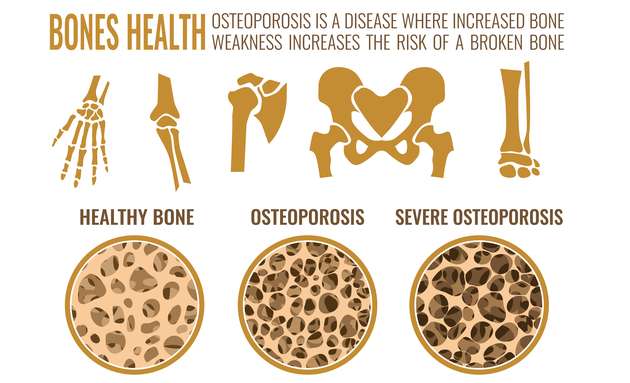More than 200 million people are affected by Osteoporosis worldwide. It is a disease that weakens the bones and leaves a person prone to fractures. Osteoporosis affects both men and women, but the reasons behind it may differ. But is bone wear and tear with age sure to cause osteoporosis, or is it preventable from an early age? Let’s find out.

What is Osteoporosis?
Osteoporosis is a condition in which your bones loses its mass and density. Bones are porous living structures that are storehouses of calcium and other minerals that our body normally needs. These structures are constantly growing, gathering bone mass and density through childhood, adolescence, and youth until the age of 20, after which the skeleton continues to 'remodel' itself: old bone tissue gets discarded, and fresh, healthier tissue is accumulated.

This process is also called bone resorption. When the normal resorption process is inhibited by a lack of nutrition or calcium in our diet or other factors such as an increase in alcohol consumption, smoking, or steroidal treatment, bone tissue is lost faster than it can be replaced. This widens the holes or pores within the interior structure of the bones and consequently increases the risk of osteoporosis.
What are the Uncontrollable Risk Factors for Osteoporosis?
There are some risk factors that can result in osteoporosis that you cannot control. They are:
- Progressing age
- Family history of Osteoporosis
- Small body frame that increases the risk of fractures
Can You Prevent Osteoporosis?
While some risk factors cannot be controlled, there are other lifestyle factors that contribute to the onset of Osteoporosis. But a few changes can help you prevent Osteoporosis in the long run:
- Diet: Vitamin D, or the sunshine vitamin and calcium are two key ingredients for solid bone health. Calcium helps bones get stronger, and Vitamin D helps absorb the calcium. A good balance of these nutrients in your diet can go a long way in bone health.
- Certain medical conditions: Diseases that need more than 2 weeks of corticosteroid use, cystic fibrosis, IBD or Inflammatory Bowel Disorders, anorexia, and amenorrhea (absence of menstruation) are known to increase your risk of osteoporosis.
- Sedentary Lifestyle: Increasing sedentary lifestyles and fast food diets are making us lose our bone mass and strength. Try exercising at least 30 mins a day to keep yourself active and your bone health in its prime.
- Sex hormone deficiencies: Low levels of oestrogen in your body, which can result in Amenorrhea (absence of menstruation) are also known to contribute to the risk of osteoporosis. Similarly, low testosterone in men can affect bone health.
- Excessive Smoking and Drinking: Both excessive use of alcohol and tobacco can contribute to osteoporosis. Avoid drinking too much and quit smoking.
- Long-term, high dose usage of some medications: Long-term use of some medicines, such as some drugs that are used to suppress the immune system, corticosteroids, chemotherapeutic drugs, and antacids that contain aluminum, can lead to bone loss. Check with your doctor for alternative treatment options.


0 Comments